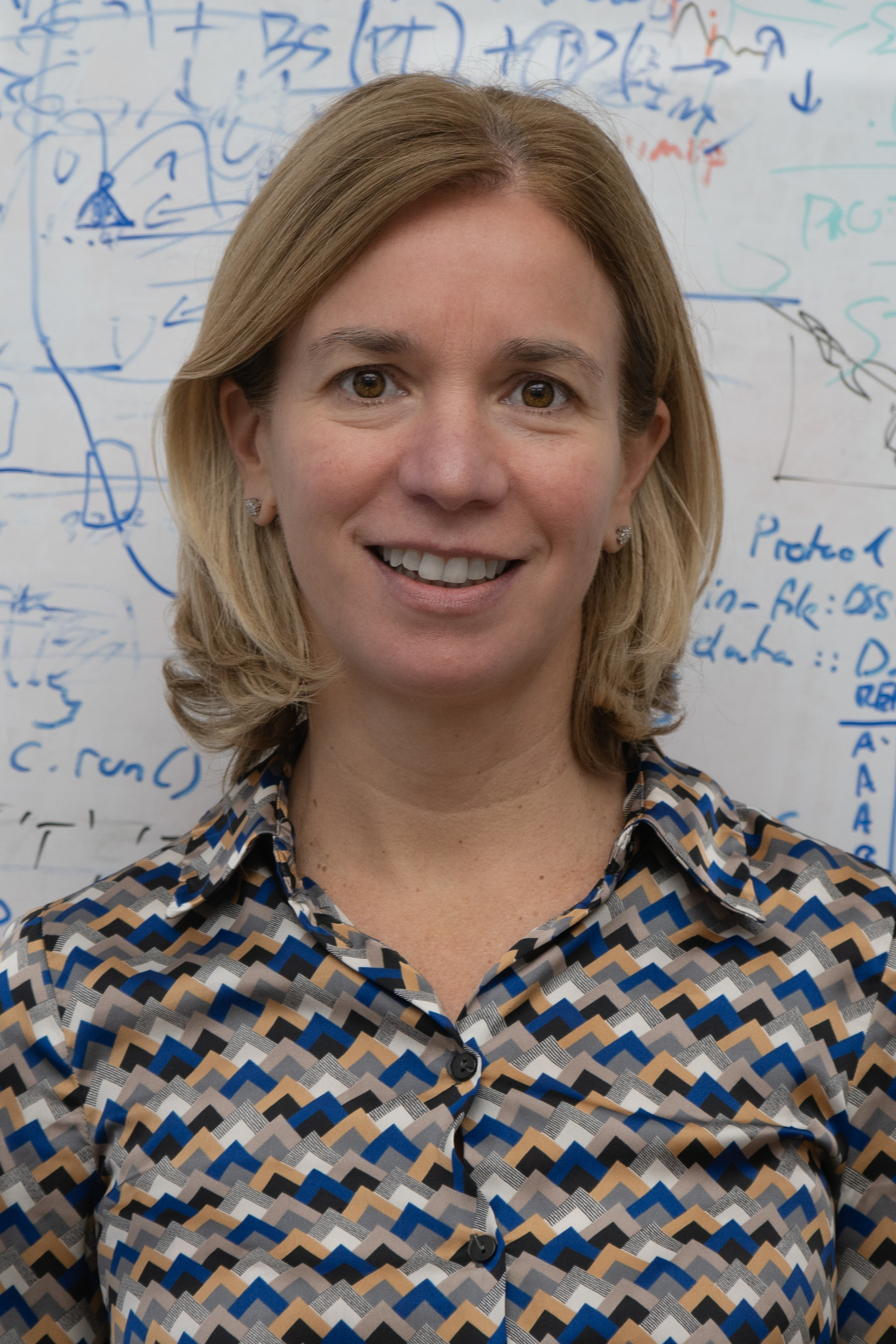
Prof. Ana Martin-Villalba
Principal Investigator
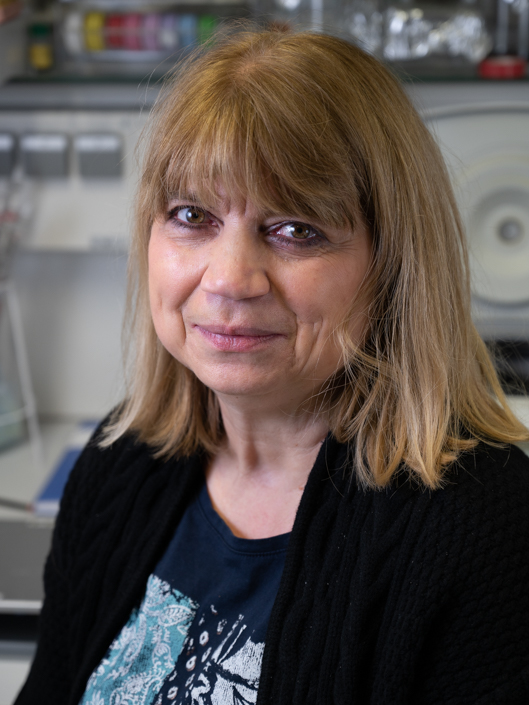
Irgmard Weirich
Administrative assistant
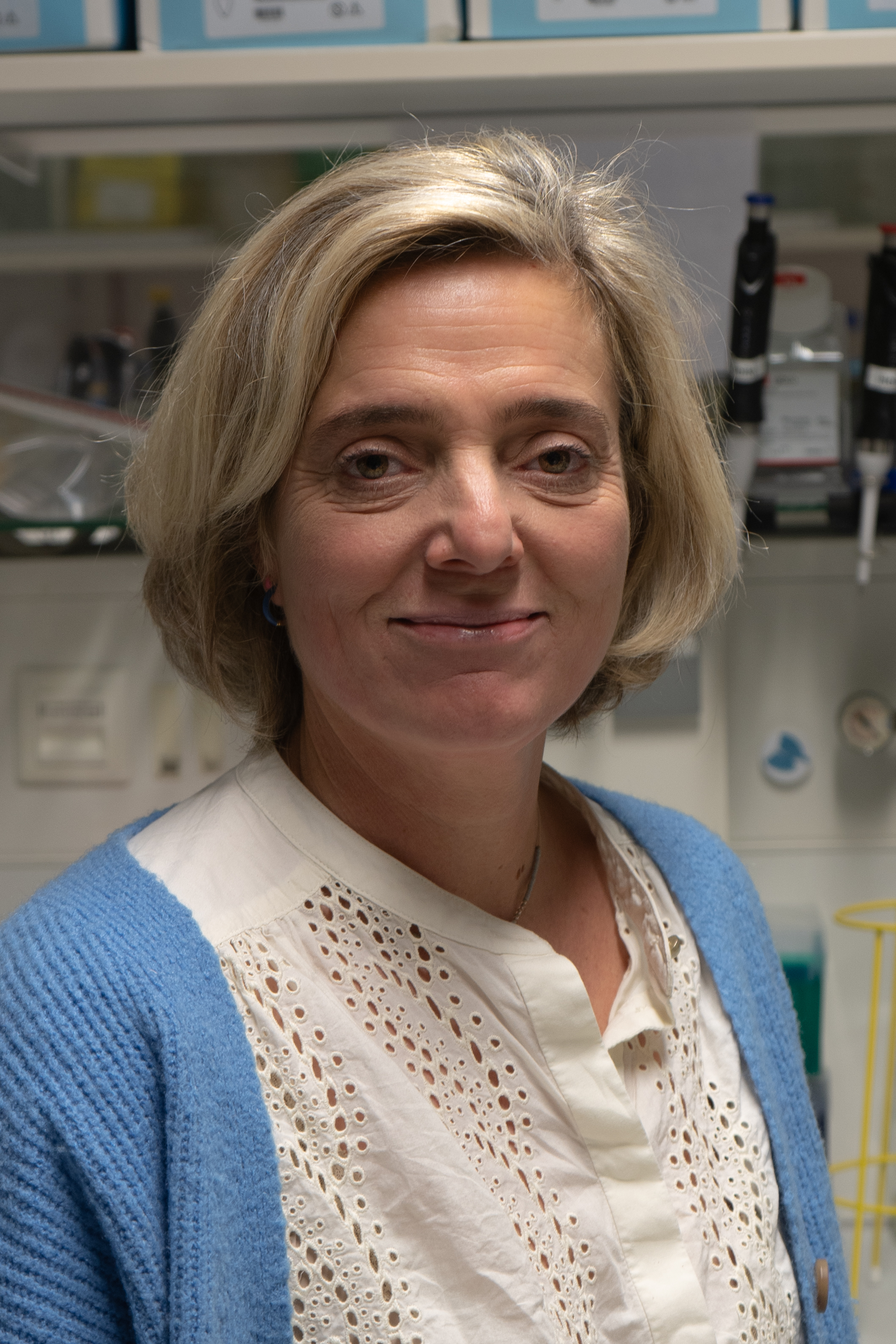
Dr. Susanne Kleber
Lab manager
Suse is virtually part of the lab's inventory. After studying biology at the universities of Frankfurt am Main and Heidelberg, she did her PhD under Ana's guidance at the DKFZ. At that time, the group succeeded in uncovering a new signaling pathway of CD95 that strongly influenced the perspective of CD95 research. Since 2007, when Ana became an independent junior research group leader, Suse has been by her side. She has many different tasks as lab manager (e.g. planning and coordinating teaching activities, supporting Ana in administrative matters, also some CD95 research), which she enjoys very much. She loves running, biking and being with her Family!
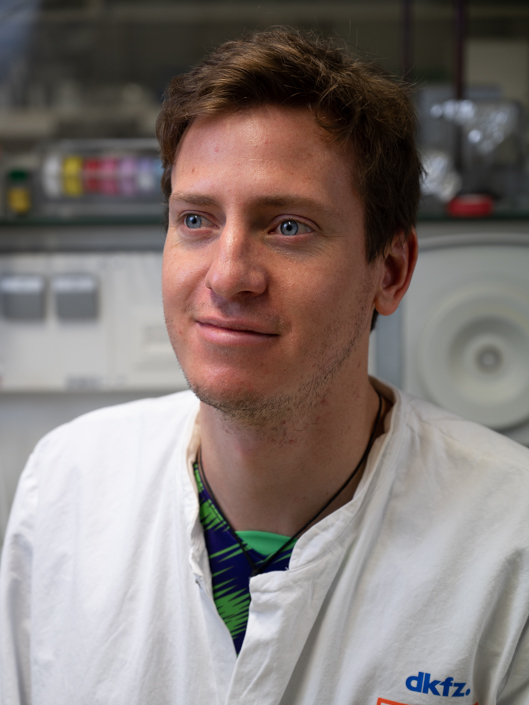
Dr. Santiago Cerrizuela
Staff scientist
Santiago studied Biotechnology at the National University of Tucuman in Argentina. He then completed the PhD in Developmental biology on the same university studying the role of the Hedgehog signaling pathway on neural crest morphogenesis, using the as a model the amphibian Xenopus laevis. On 2018, he moved to the DKFZ in Heidelberg to perform a postdoc. In the lab he is working on single-cell and viral targeting technologies to understand neural stem cell activation in homeostasis as well as in ageing and upon ischemic injury. He is also interested in the role of interferons on the differentiation of stem cells and how they modulate adult neurogenesis. He likes to play Padel and Table tennis and enjoys winning at darts.
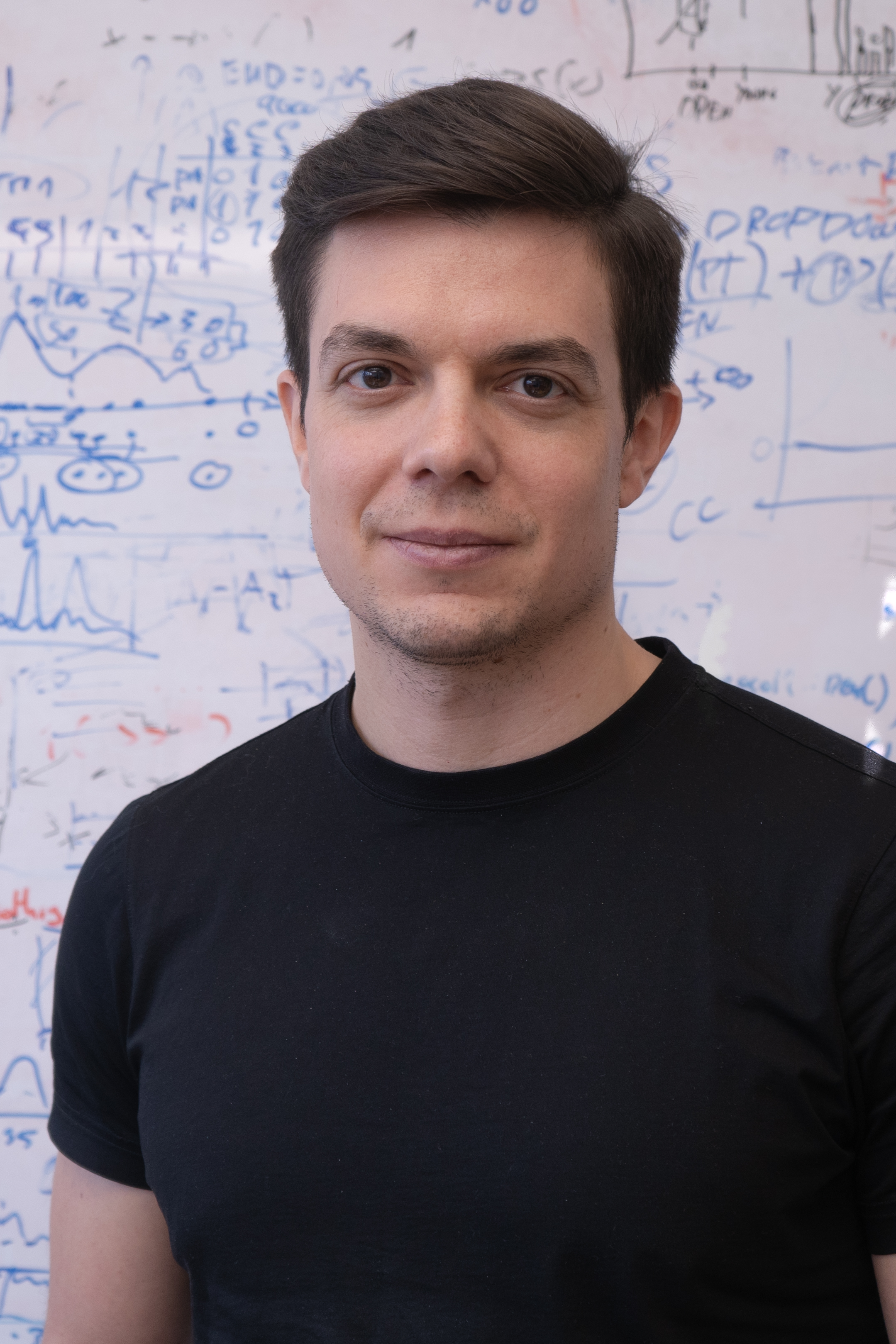
Dr. André Lopes Martins Macedo
Post-doc
André started his scientific career with a bachelors in Biochemistry and a masters in Clinical Biochemistry at Lisbon Uni in Portugal. During this time he did an Erasmus internship at Liverpool Uni studying anti-aging mechanisms in naked mole rats and his master thesis at CEDOC studying the defensive mechanisms of Drosophila to transposable elements. Afterward, he did his PhD developing a new combinatorial method to target specific cells. In 2021, he started a postdoc in the lab where he is developing computational and statistical methods to deal with UTR size count data and applying those methods to the study of neurodevelopmental diseases.
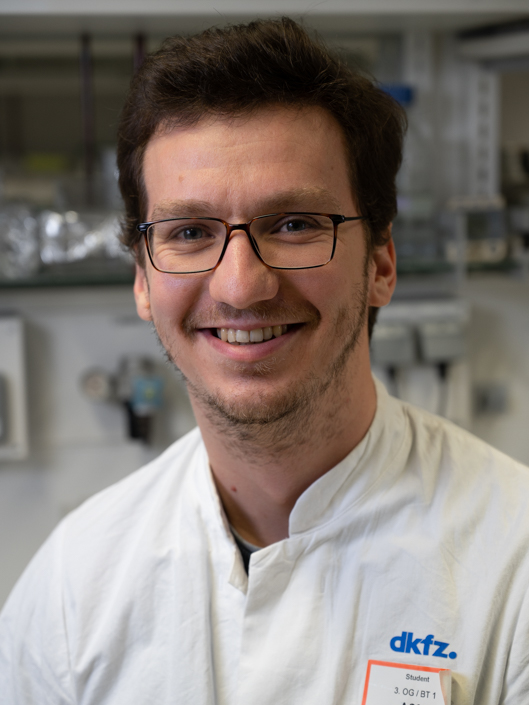
Dr. Leo Förster
Post-doc
Lorem ipsum.
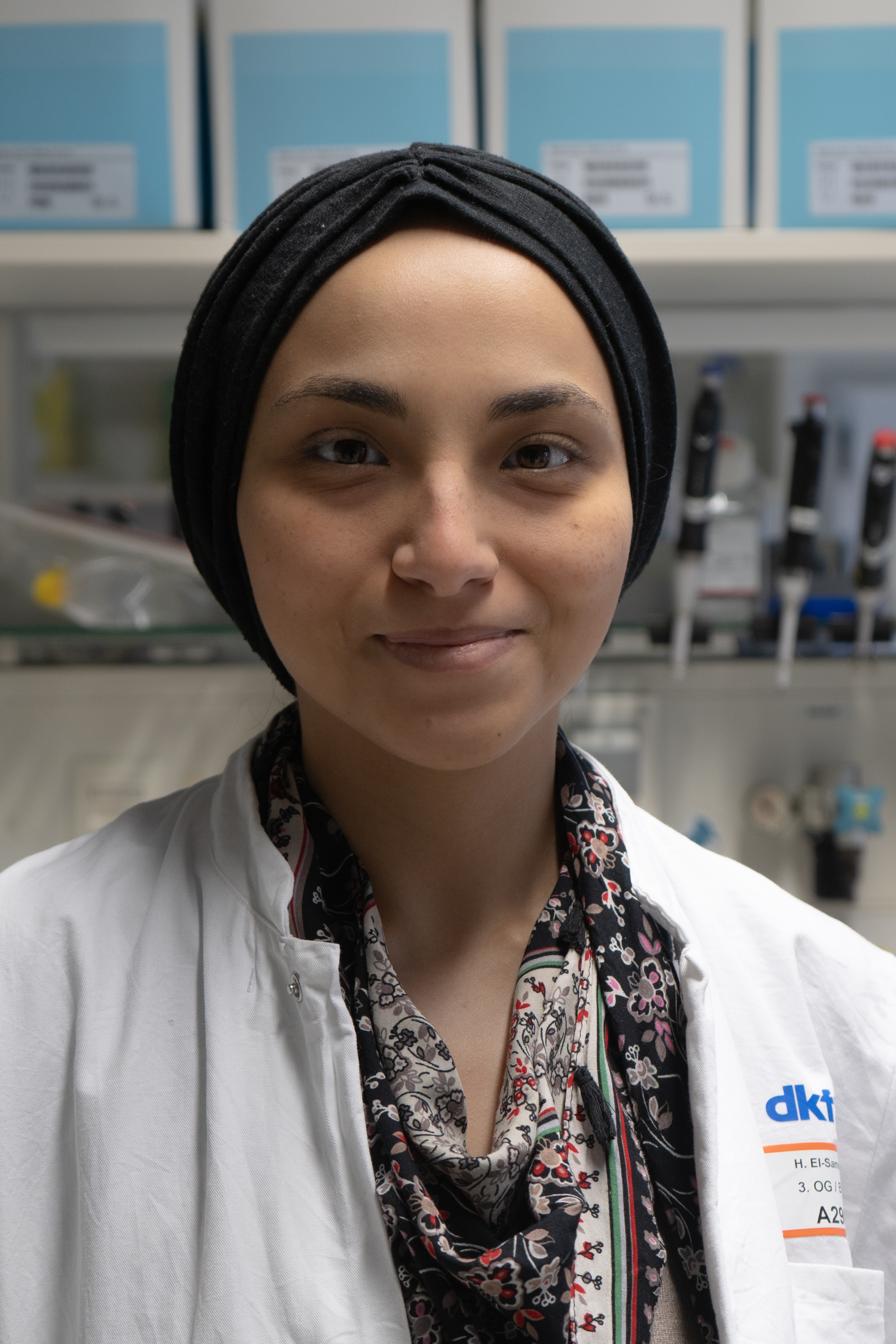
Dr. Hadil El-Sammak
Post-doc
Hadil studied Pharmacy for her bachelors at the German University in Cairo. She then moved to Göttingen, Germany for her master’s studies in molecular biology. Hadil then joined the Max Planck Institute for Heart and Lung Research for her PhD to work on cardiac regeneration using zebrafish as a model organism. With continuous interest in tissue regeneration, Hadil joined our group in 2022 and now works on understanding the regenerative potential of astrocytes in the adult mouse brain. In her free time, Hadil enjoys hiking, playing sports and reading.
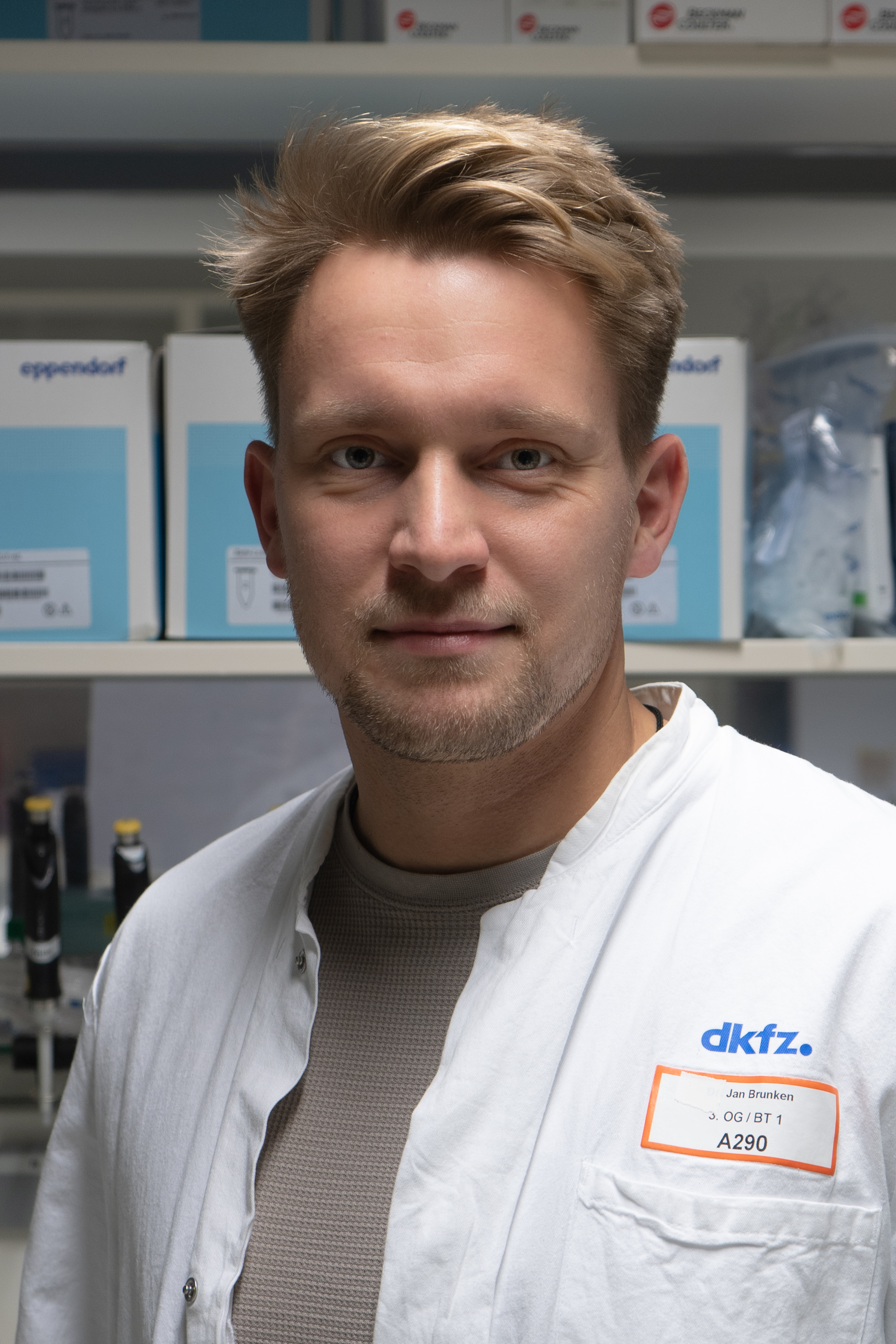
Jan Brunken
PhD student
Jan completed his Bachelor's studies in Biochemistry at the University of Göttingen studying structural and mechanistic properties of Vitamin B1-dependent catalysis. After moving to Heidelberg for his Master's studies in Biochemistry, he joined our lab to investigate the role of polyploidization in pancreatic acinar cell dedifferentiation and regeneration. After completing his thesis, he decided to stay in the lab to continue his studies for his PhD – now focusing on polyploidy as a potential driver of chromosomal instability and tumorigenesis in the adult pancreas and mammary gland. Outside the lab, he is a track and field athlete and enjoys outdoor activities like climbing and skiing.
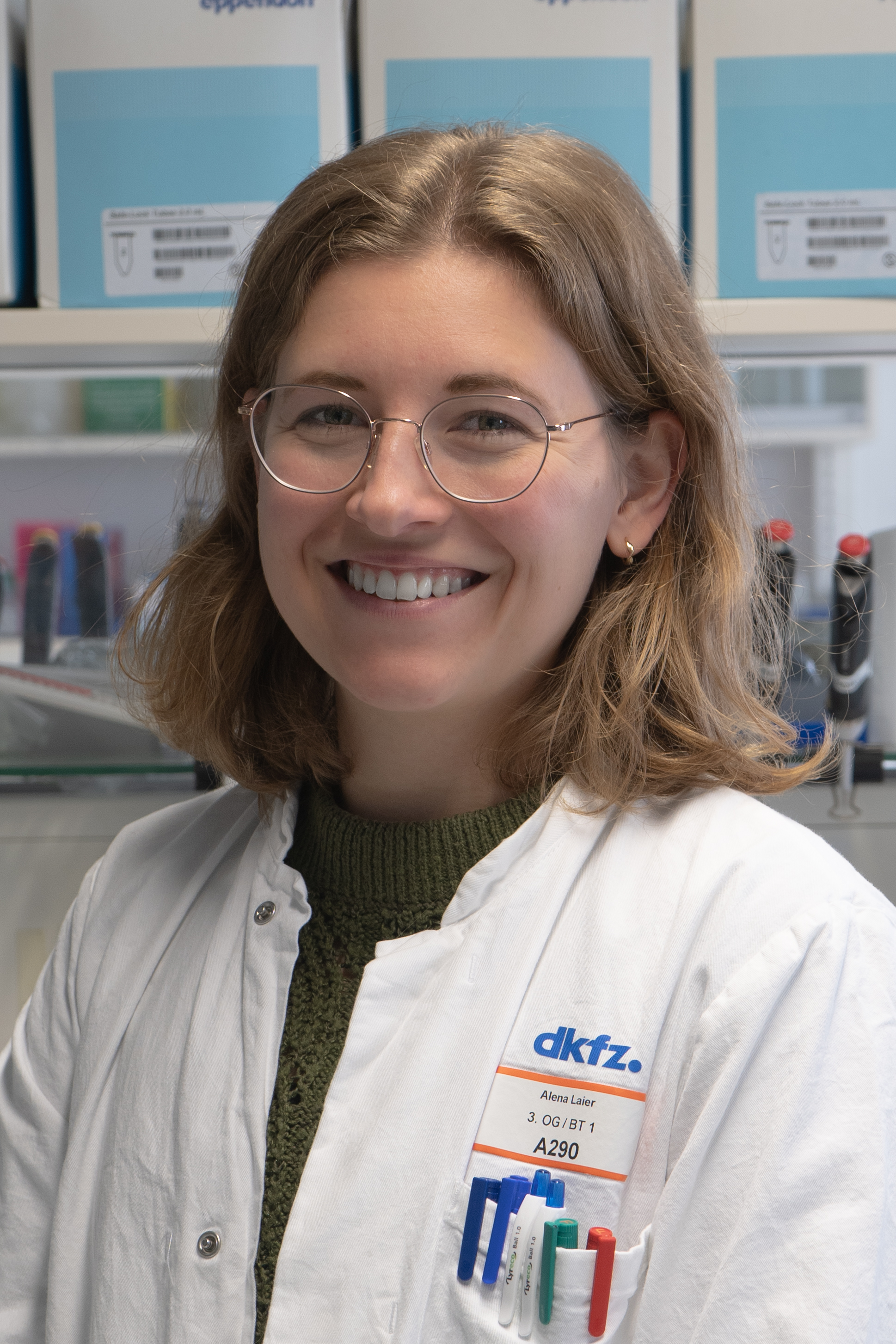
Alena Ditton
PhD student
Alena studied Biotechnology at the University of Applied Sciences Mannheim and performed her Bachelor Thesis at Max Delbrück Center for Molecular Medicine in Berlin studying Sonic Hedgehog signaling in forebrain development. For her master studies Alena moved to the Molecular Biosciences program at University of Heidelberg and joined our lab for her master thesis. Afterwards, she decided to stay for her PhD working on sequencing technologies to understand neural stem cell dynamics in homeostasis and aging. Outside the lab, Alena enjoys hiking and bouldering and takes every chance to try to convince her colleagues to join.
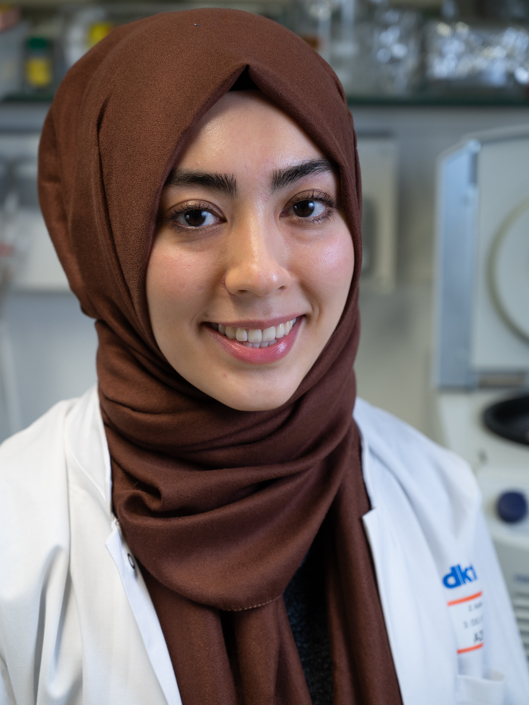
Zeynep Aydin
PhD student
Zeynep finished her Bachelor degree at the University of Hamburg and did an Internship at the Sainbury Laboratory in Cambridge UK, before starting her next degree in Heidelberg. Studying Developmental and Stem Cell Biology in her masters, she fell in love with the beautiful city of Heidelberg and the great scientific environment hidden inside. After a 6 month research project in the US she decided to stay for her PhD at the DKFZ Heidelberg, where she already performed her master thesis but wanted to switch topics and joined our lab to study neural stem cells and their role in brain injury repair by applying novel sequencing methods. Zeynep loves to travel and explore new cultures, it is therefore not surprising that she is a huge fan of language learning. She is fluent in four languages and aims to to be fluent in the 5th language at the end of her PhD. Be aware, she might not only walk around in a lab coat but you will find her quite often wearing her self designed and tailored clothes as well.
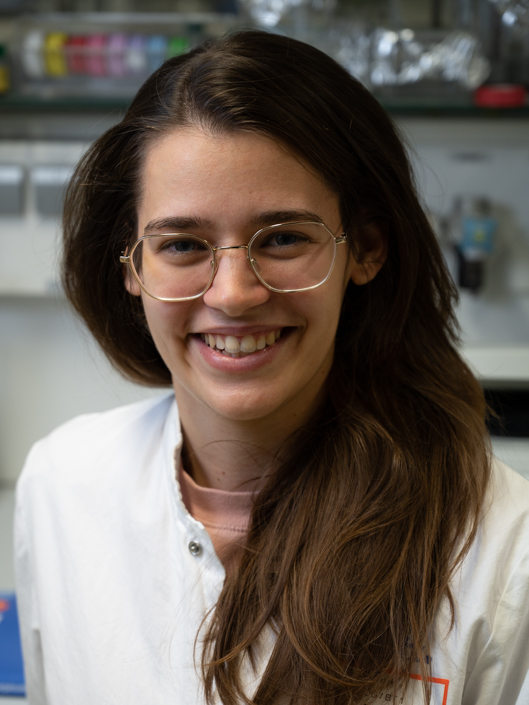
Andrea Sarvari
PhD student
Andrea did her bachelors in Microbiology at University of Ljubljana in Slovenia. After a brief time working in chocolate shop, she decided to do a switch in the field and joined the Masters Program of Stem Cell and Developmental Biology in Heidelberg. In 2019 she also joined the lab initially as a master student and then later as a PhD student. She is focused on implementing single cell technologies to pancreatic cells and acinar cell derived organoids to investigate dedifferentiation and regeneration upon injury in pancreas. Whenever she is not busy pipetting she likes to plan weekend trips to the mountains or new painting projects.
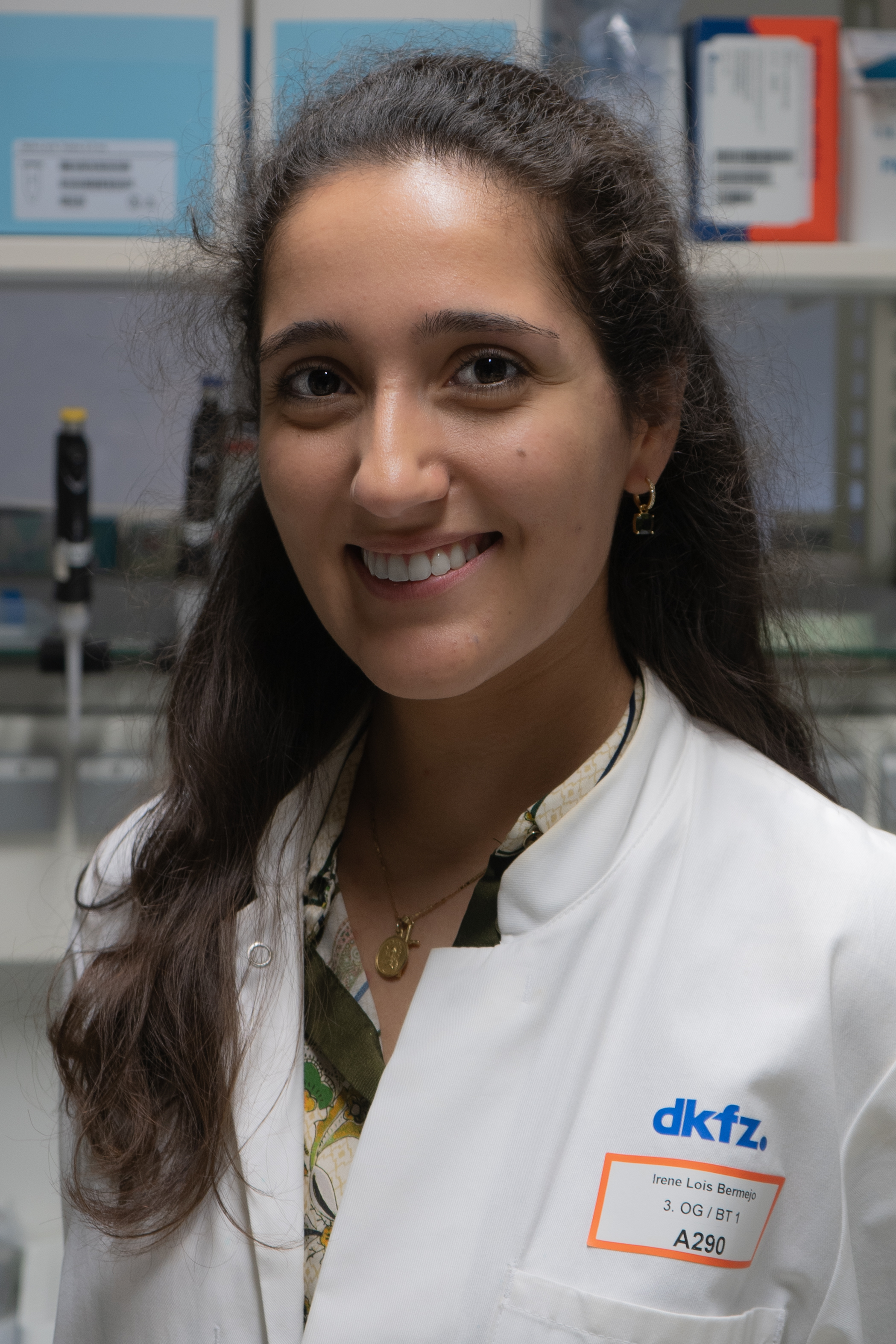
Maria Irene Lois Bermejo
PhD student
Irene studied Biochemistry in the Universidad Complutense of Madrid and did her BSc thesis on the cytoskeletal protein vimentin at Perez-Sala Lab (CIB-CSIC). She then moved to Heidelberg for her Master studies to focus on Developmental and Stem Cell Biology, following an interest for pluripotency and cell fate commitment. She completed her Master Thesis in the Martin-Villalba Lab, working on clonal lineage tracing of neural stem cells. She is currently continuing this research into her PhD, hoping to understand what NSCs are capable of doing at the single individual level. In her free time, she likes to discover new concrete jungles or find calmness with a book. She is a walking Duolingo, who will randomly use Spanish catchphrases you wont be able to forget.
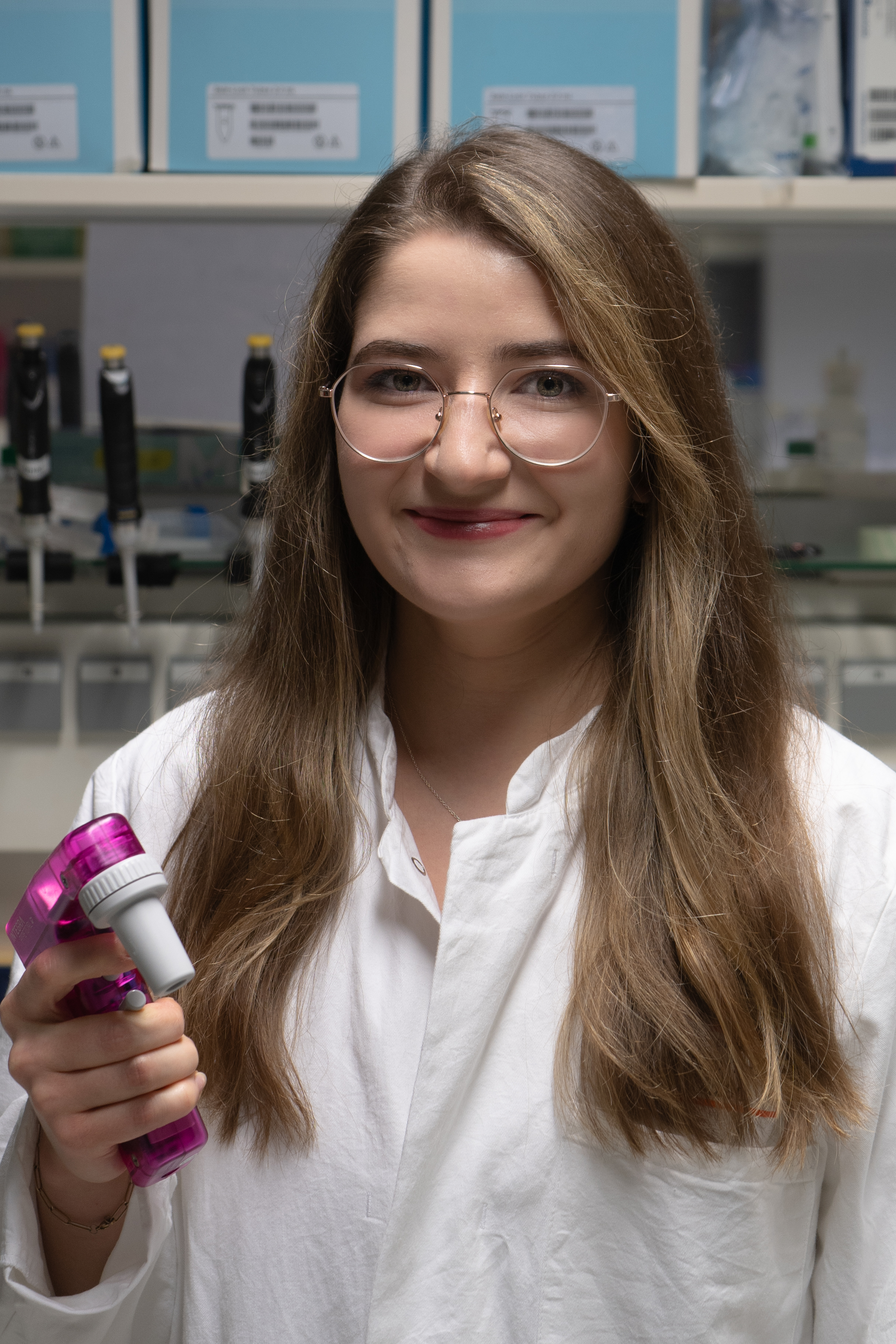
Mariia Kuchina
PhD student
Maria started her research career as a medical student in Yekaterinburg, Russia. Being tired of bears playing balalaika all the time, she moved to Heidelberg to pursue a bachelor of science in molecular biotechnology followed by a masters program in stem cell biology. Maria is currently working on deciphering stem cells interaction in adult brain at a single cell level. Occasionally you can find her in random European countries looking for new adventures, playing guitar, or rewatching lord of the rings for the one thousand thirty seventh time.
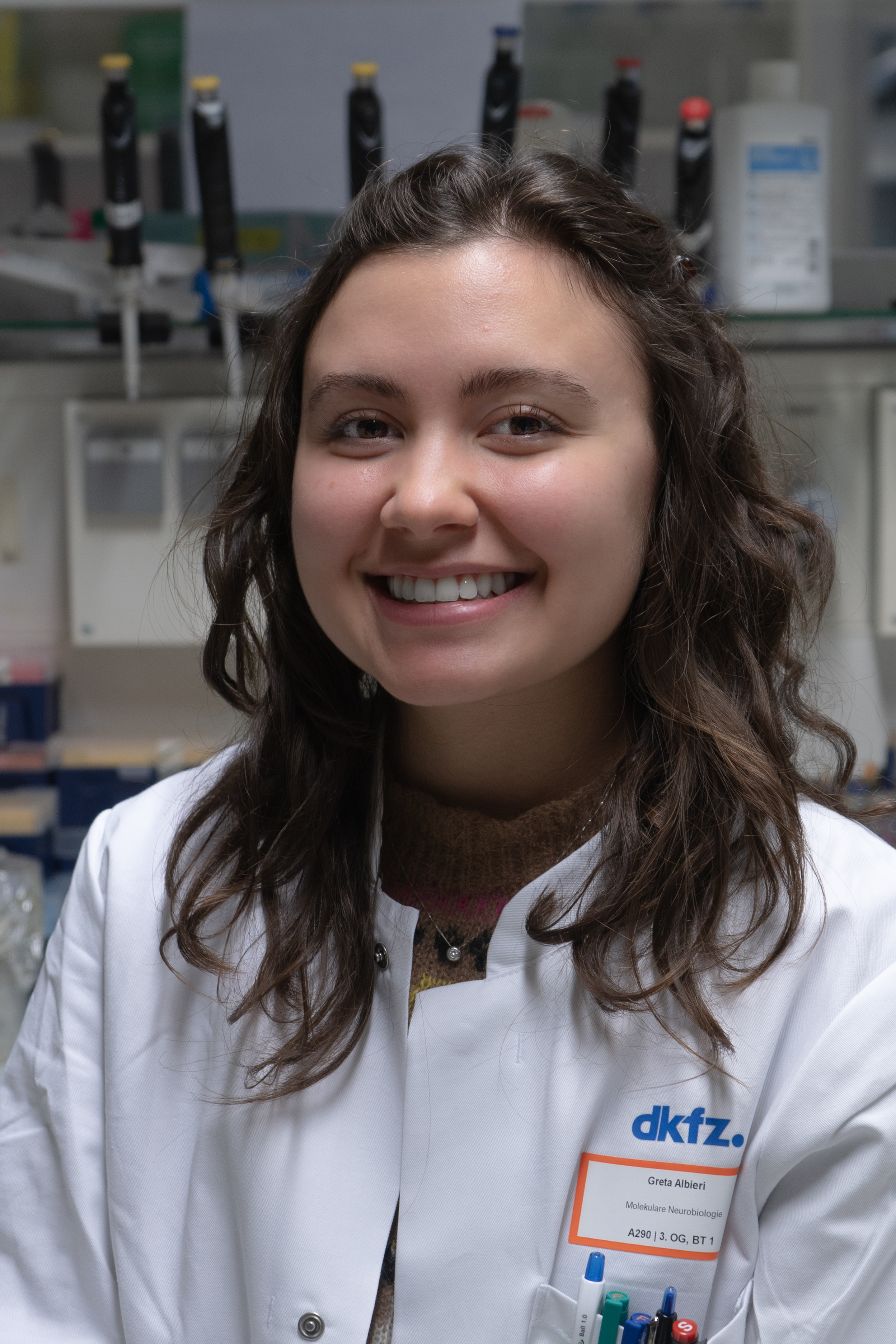
Greta Albieri
PhD student
Greta graduated with a Bachelor’s degree in Biological sciences at the University of Ferrara, in Italy. Then, driven by her interest in the nervous system, she pursued a Master’s degree in Neurobiology at the University of Pavia. Immediately after the defence of her thesis on the biocompatibility of a new subretinal prosthesis, she joined the lab as an Erasmus trainee to learn more about molecular biology. Eventually, she decided to stay as a PhD student to investigate the role of signalling pathways on neural stem cells dynamics at single cell level, both under homeostasis and pathological conditions. In her spare time, she loves dancing, doing yoga, watching movies and trying to veganize Italian dishes when her grandma is not around.
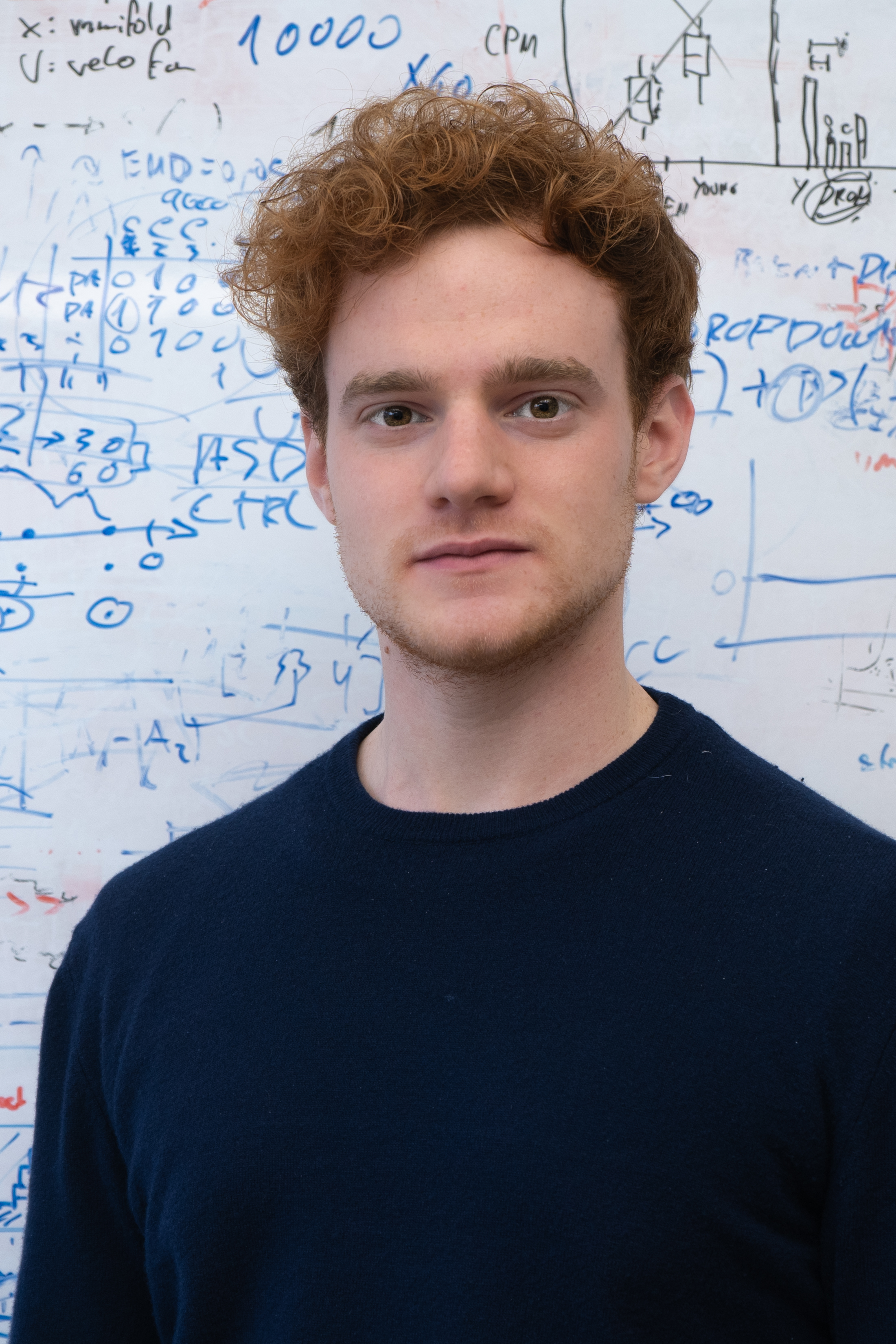
Enrico Frigoli
PhD student

Xiaoyu Sun
PhD student

Axel Carbone
PhD student
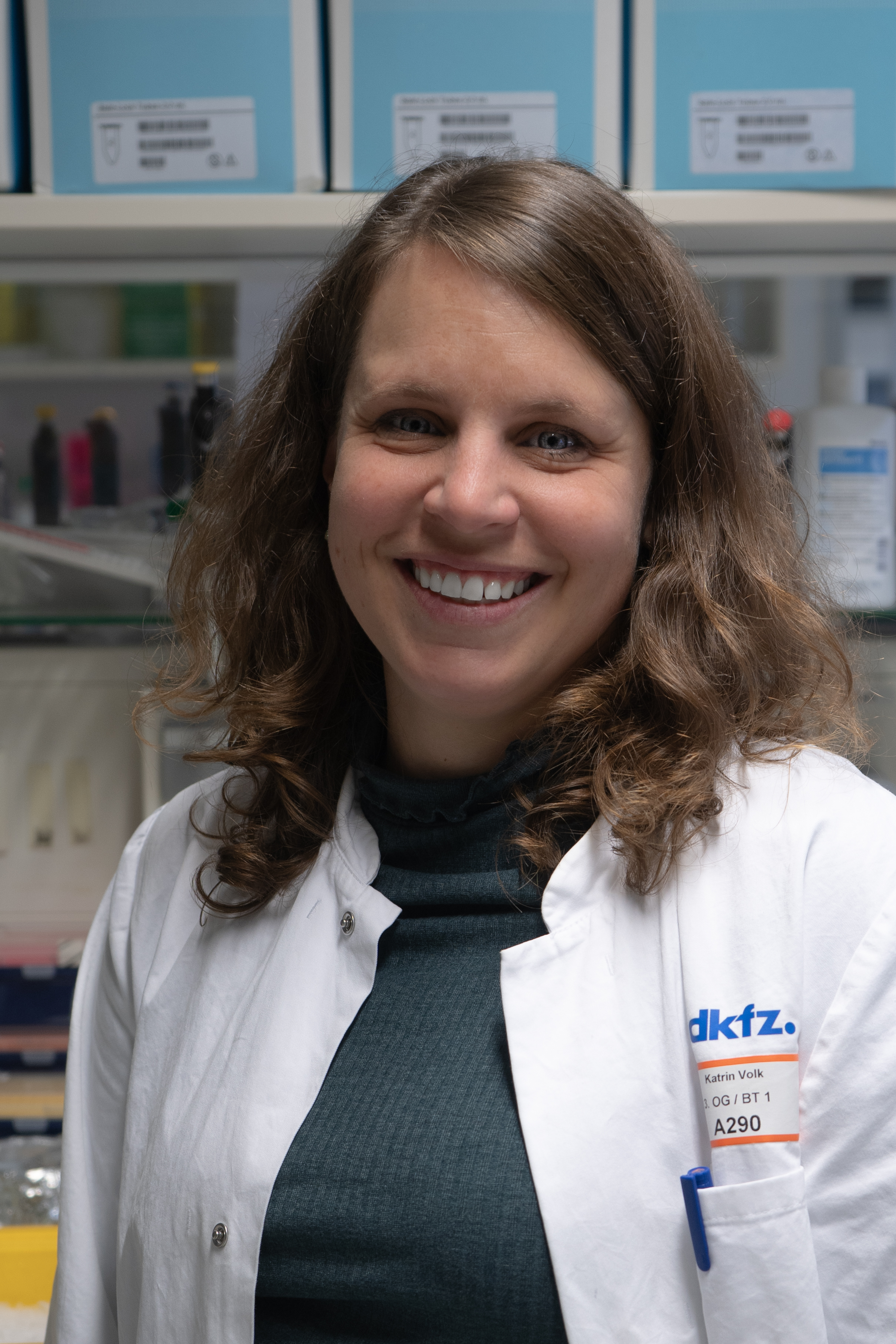
Katrin Volk
Technician
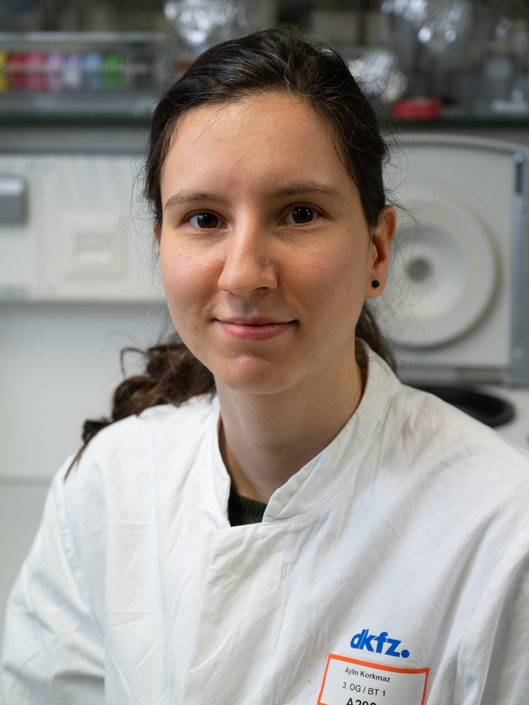
Aylin Korkmaz
Technician
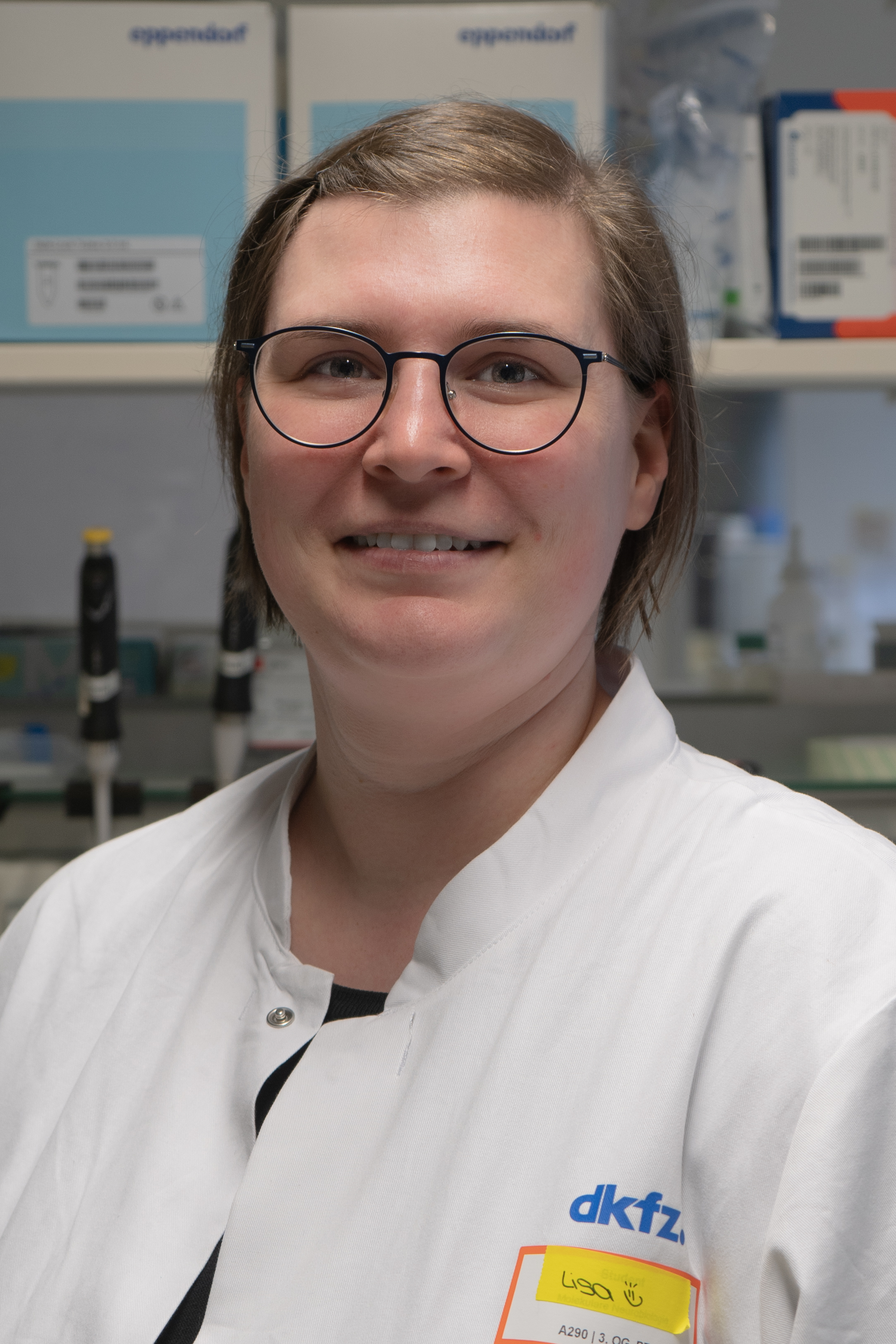
Lisa Haberl
Azubi

Aleksa Simic
Azubi